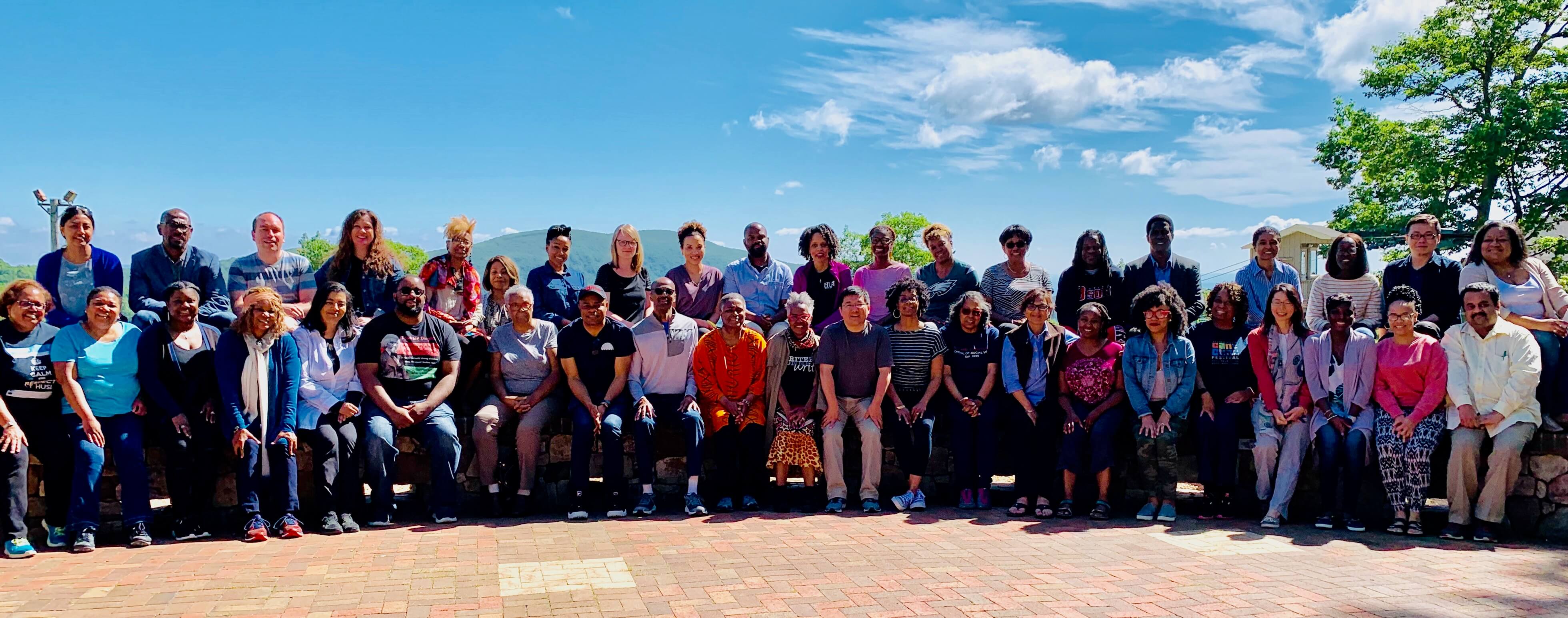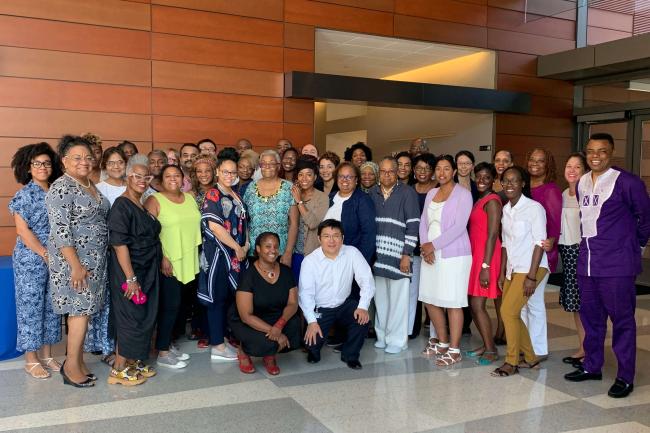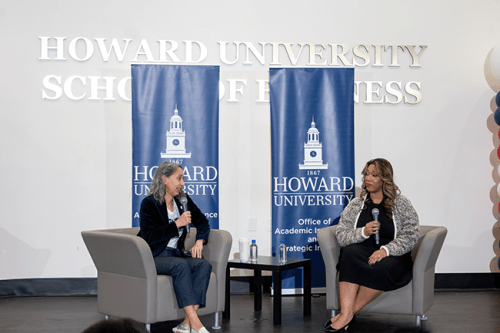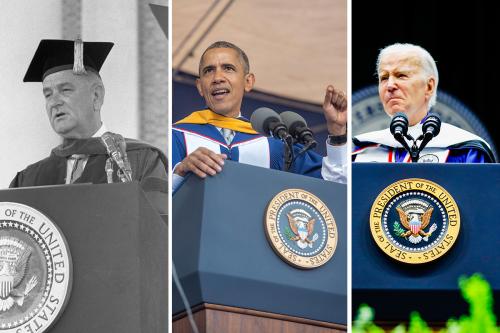WASHINGTON – A diverse group of Howard University faculty members are among the scholars of the 2019 Junior Faculty Writing & Creative Works Summer Academy (Summer Academy), an annual program that pairs junior and senior faculty for interdisciplinary research that is ultimately presented through scholarly publications and creative works. The Summer Academy, now in its fourth year, is sponsored by the Office of Faculty Development, within the Office of the Provost, and offers 25 junior faculty the opportunity to enhance their scholarly agenda and receive critical feedback through an interdisciplinary learning community. Each junior faculty member receives individualized coaching and mentoring from a senior colleague, thus supporting two pillars of the University’s five-year strategic plan, Howard Forward, by Enhancing Academic Excellence and Inspiring New Knowledge. The Summer Academy serves as an institutional model for reinforcing an internal pipeline of connectivity and collaboration between departments, and schools and colleges.
“It is essential that we continue to invest in the development of our faculty throughout the academic career continuum,” says Anthony K. Wutoh, Ph.D., Provost and Chief Academic Officer. “The Junior Faculty Writing and Creative Works Summer Academy has done a fantastic job of supporting this development among our junior faculty colleagues. Associate Provost Okianer Christian Dark deserves a great deal of credit in coordinating and implementing this excellent program.”
The 2019 cohort is the largest to date and includes assistant professors, lecturers and master instructors representing a cross-section of the University, from art and English, to nursing and world languages. Junior faculty submit an application in the spring term to participate in the program, which includes a proposed summer project. Each scholarly publication or creative work is developed by the faculty scholar with the support of a scholar coach. Typically, the scholar coach is not in the same discipline as the faculty scholar or junior faculty, which maximizes the advantages of interdisciplinary collaboration on the project. For example, Dahlia Nduom, assistant professor of architecture, is paired with Professor Sonja Williams, professor of media, journalism and film. As a collaboration, the scholars are working on the article, “Tourism, Topicalization and the Architectural Image: An Analysis of Montego Bay, Jamaica.” According to Associate Provost for Faculty Development Okianer Christian Dark, J.D., junior faculty who have participated in the Summer Academy have said that this program can alter the trajectory of a junior faculty’s career by being exposed to new ideas, new ways of thinking and new colleagues, and most especially having intensive mentoring by seasoned remarkable Howard faculty throughout the program. For many junior faculty, the mentoring relationships with senior faculty from across the University continues well beyond the program.
“The Summer Academy is designed to help junior faculty to build professional careers in the academy where they can thrive as scholars and teachers,” Associate Provost Dark explains. “As one of our scholar coaches stated so succinctly – the Summer Academy is a place for them to dream, believe and pursue. At the end of the summer, each junior faculty member will have a completed project but they will also have camaraderie-rich interdisciplinary environment that they can continue to be a part of well beyond the program.”
 She works with two co-directors to execute the annual academy – Rubin Patterson, Ph.D., dean of the College of Arts and Sciences and Elka Stevens, Ph.D., associate professor and coordinator of the fashion program, within the Department of Art. The program typically begins in May, with a four-day, off-campus retreat, followed by several brown bag sessions and an intense two-day research retreat. In all, the academy offers multiple opportunities for junior and senior faculty to collaborate on their writing and creative pursuits. Senior faculty are carefully selected to work with two different faculty scholars, separately, towards the completion of their scholarly publication or creative work, which must be submitted to a publisher or appropriate external party by mid-September. The Summer Academy also invites a visiting scholar coach to be a part of the Summer Academy to further enrich the experience for junior faculty. This year, Joyce Ladner, Ph.D., noted author, civil rights activist former professor and interim Howard University president, is the 2019 visiting scholar coach.
She works with two co-directors to execute the annual academy – Rubin Patterson, Ph.D., dean of the College of Arts and Sciences and Elka Stevens, Ph.D., associate professor and coordinator of the fashion program, within the Department of Art. The program typically begins in May, with a four-day, off-campus retreat, followed by several brown bag sessions and an intense two-day research retreat. In all, the academy offers multiple opportunities for junior and senior faculty to collaborate on their writing and creative pursuits. Senior faculty are carefully selected to work with two different faculty scholars, separately, towards the completion of their scholarly publication or creative work, which must be submitted to a publisher or appropriate external party by mid-September. The Summer Academy also invites a visiting scholar coach to be a part of the Summer Academy to further enrich the experience for junior faculty. This year, Joyce Ladner, Ph.D., noted author, civil rights activist former professor and interim Howard University president, is the 2019 visiting scholar coach.
Dark says while junior faculty from all disciplines are encouraged to apply for a spot in the Summer Academy, faculty representing African studies, Afro-American studies, fine arts, humanities, history, and sociology are particularly encouraged due to program funding by The Andrew W. Mellon Foundation. Faculty members who apply must be interested in enhancing their scholarly agenda through the process of writing or creating, rewriting or recreating, reflecting, and receiving critical feedback in a summer-long faculty development interdisciplinary learning community.
For more information on Junior Faculty Writing & Creative Works Summer Academy, visit https://www2.howard.edu/provost/faculty-development.
###
Photo 1: 2019 Junior Faculty Writing & Creative Works Summer Academy at Interdisciplinary Research Building
Photo 2: 2019 Junior Faculty Writing & Creative Works Summer Academy during annual retreat
ABOUT HOWARD UNIVERSITY
Founded in 1867, Howard University is a private, research university that is comprised of 13 schools and colleges. Students pursue studies in more than 120 areas leading to undergraduate, graduate and professional degrees. The University operates with a commitment to Excellence in Truth and Service and has produced four Rhodes Scholars, 11 Truman Scholars, two Marshall Scholars, one Schwarzman Scholar, over 70 Fulbright Scholars and 22 Pickering Fellows. Howard also produces more on-campus African-American Ph.D. recipients than any other university in the United States. For more information on Howard University, visit www.howard.edu.
Media contact: Ramzey Smith, Office of University Communications, ramzey.smith@howard.edu





